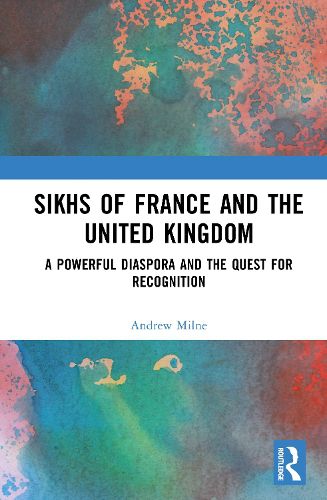Readings Newsletter
Become a Readings Member to make your shopping experience even easier.
Sign in or sign up for free!
You’re not far away from qualifying for FREE standard shipping within Australia
You’ve qualified for FREE standard shipping within Australia
The cart is loading…






The book provides a historical analysis of how India and the Sikh community have been situated within the international relations policies of the UK and France. It focuses on the turban campaigns, legal challenges, and lived experiences of Sikhs in both nations, offering new insights into diaspora identity, state policy, and integration.
The book features first-hand interviews, case studies, and legal documentation, as well as historical newspaper archives that illuminate the Sikhs' struggle for recognition. Readers will gain a deeper understanding of the differing legal and cultural landscapes that shape the lives of Sikhs in the UK-where exemptions have enabled them to freely express their religion-and France, where strict secularism curtails, or banishes it. These contrasts reveal how national set-ups exercise control over and impact identity, cohesion, and civil rights, equipping readers with nuanced knowledge of migration, religious freedom, and international law.
A comparative study of the Sikh diaspora, the book will be essential reading for scholars and students of Sikh studies, British and French history, law, sociology, international relations, and migration or diaspora studies. It will also appeal to policy makers and activists interested in multiculturalism and human rights.
$9.00 standard shipping within Australia
FREE standard shipping within Australia for orders over $100.00
Express & International shipping calculated at checkout
The book provides a historical analysis of how India and the Sikh community have been situated within the international relations policies of the UK and France. It focuses on the turban campaigns, legal challenges, and lived experiences of Sikhs in both nations, offering new insights into diaspora identity, state policy, and integration.
The book features first-hand interviews, case studies, and legal documentation, as well as historical newspaper archives that illuminate the Sikhs' struggle for recognition. Readers will gain a deeper understanding of the differing legal and cultural landscapes that shape the lives of Sikhs in the UK-where exemptions have enabled them to freely express their religion-and France, where strict secularism curtails, or banishes it. These contrasts reveal how national set-ups exercise control over and impact identity, cohesion, and civil rights, equipping readers with nuanced knowledge of migration, religious freedom, and international law.
A comparative study of the Sikh diaspora, the book will be essential reading for scholars and students of Sikh studies, British and French history, law, sociology, international relations, and migration or diaspora studies. It will also appeal to policy makers and activists interested in multiculturalism and human rights.